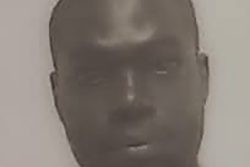“I don’t see any signs that point to an end to the mission here,” Gen. Floriano Peixoto Vieira Neto said by telephone late on Wednesday.
“The strides we’ve made in security haven’t been matched by the socioeconomic gains we hoped for, and so that’s why we say that the status in Haiti is extremely fragile,” he said.
Haiti has been roiled by political violence for decades. The latest round began in 2004, when an armed revolt led to then-president Jean-Bertrand Aristide’s flight into exile.
Haiti then asked the United Nations for help, the genesis of the current mission. But accusations of human rights violations and corruption are still common.
Haiti’s Senate last Friday voted out Prime Minister Michele Pierre-Louis over her failure to improve the economy.
President Rene Preval chose economist Jean-Max Bellerive to take her place later the same day, after the UN mission in Haiti appealed for the swift appointment of a successor to avoid further instability.
Haiti ranks 149 out of 182 nations in the UN Human Development Index.
Life expectancy at birth is 61 years of age, the lowest in the Western Hemisphere, according to 2007 World Bank numbers. The per-capita gross national income is also the region’s lowest.






